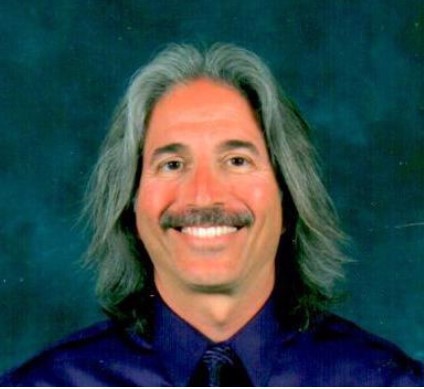The Medication Generation: Mental Health Medications
and FAA Medical Certification
Having a current, valid medical certificate is necessary to exercise the privileges of a pilot license.
As such, it is understandable why there is so much angst around obtaining and maintaining a medical certificate. As a HIMS AME and HIMS psychiatrist, I frequently get calls and e-mails about how mental health and substance abuse issues might affect medical certification. In particular, questions involve mental health medications and a history of DUI. Oftentimes, a pilot will start off the conversation with, “I Googled DUIs on the internet and read that you can’t get a medical certificate if you’ve ever had a DUI” or “A friend who’s a pilot told me I can’t be on this psych med and so I stopped taking it”. Let’s see if we can cut through some of the confusion and get some clarity on this important topic. We’ll begin with the FAA’s policy on psychiatric medications and follow-up with DUIs in a future article.
The FAA’s policy on psychiatric medications is no different than on any other medications for general medical conditions. The concern is whether a medication, or its underlying condition, can cause sudden incapacitation or some sort of functional impairment that results in a pilot’s inability to safely command an aircraft. Since most psychiatric medications have effects on the central nervous system, there are a limited number of psychiatric medications the FAA will consider approving for medical certification. The good news is the number of psychiatric medications approved has grown over the years, especially over the past 18 months or so. Currently, the psychiatric medications approved for granting an Authorization for Special Issuance by the FAA are Wellbutrin (bupropion XL/SR), Celexa (citalopram), Pristiq (desvenlafaxine), Cymbalta (duloxetine), 2 Lexapro (escitalopram), Prozac (fluoxetine), Zoloft (sertraline), and Effexor (venlafaxine).
For those unfamiliar with the term, a Special Issuance is a type of temporary waiver granted by the FAA for pilots with disqualifying medical conditions that have been assessed by the FAA as safe to command an aircraft. To be considered for a Special Issuance when a pilot is prescribed one of the approved psychiatric medications listed above, the pilot needs to be in stable remission (for whatever condition the medication is prescribed) on the same dose of medication for at least 6 months. Psychiatric and neuropsychological evaluations (usually by a HIMS-
certified provider) are required and need to be favorable. Pilots will frequently ask if they can discontinue their psychiatric medication, wait a couple of months, and then go to their AME to submit another medical application in the hopes of avoiding being denied a medical certificate or having to go through the Special Issuance process. Generally, pilots that have been
prescribed psychiatric medications in the past, especially in the 2 years preceding the FAA medical application, will need to be reviewed by the FAA to determine if the pilot meets medical criteria for medical certification.
One other source of confusion I have encountered. A medical certificate granted under the terms of a Special Issuance is also referred to as a restricted medical certificate. In this context, “restricted” means that, in order for the Special Issuance to remain valid, the pilot must periodically be seen by a HIMS AME and/or HIMS psychiatrist to ensure the pilot’s underlying condition remains stable and there are no side effects from the medication that affect safety of flight. All privileges of medical certification (First-, Second- and Third-Class) granted under
Special Issuance are the same as an unrestricted medical certificate. No flying privileges are lost under a Special Issuance (i.e., “restricted”) medical certificate.
One final thought. Pilots oftentimes ask me whether they should stay on their psychiatric medication and apply for a Special Issuance or discontinue the medication, apply for an unrestricted medical certificate, and, hopefully, be in a better position to obtain medical certification. That decision should always come about by a discussion between the pilot and the treating physician. The advice I can offer is that a pilot should always prioritize their health and wellbeing over medical certification. Sacrificing one’s health is never in the best interest of a
pilot. Better to optimize your health and apply for medical certification as a healthy pilot than get your medical certificate and eventually lose it due to ill health.
Dr. Mitchell Luchansky is a Senior AME, HIMS AME, and HIMS Psychiatrist. His office is located at Flagler Executive Airport (FIN) in Palm Coast, FL. For more information, go to ExamineAir.com or contact Dr. Luchansky directly at MitchFlys@ExamineAir.com.
ExamineAir, LLC was founded in 2016 by Mitchell A. Luchansky, M.D. Initially begun by providing First, Second and Third Class FAA physical examinations, it has evolved into providing predominantly HIMS services. The HIMS program involves assessing, monitoring and facilitating commercial airline, commercial and private pilots with substance abuse and mental health issues to maintain or regain their medical certification.
Mitchell A. Luchansky, M.D. is the only physician in the country who is certified as a Senior Aviation Medical Examiner, HIMS Aviation Medical Examiner and HIMS Psychiatrist. Due to his unique skills and background, he has in short order gained the respect of both individual pilots, other HIMS providers and the Federal Aviation Administration medical staff.
